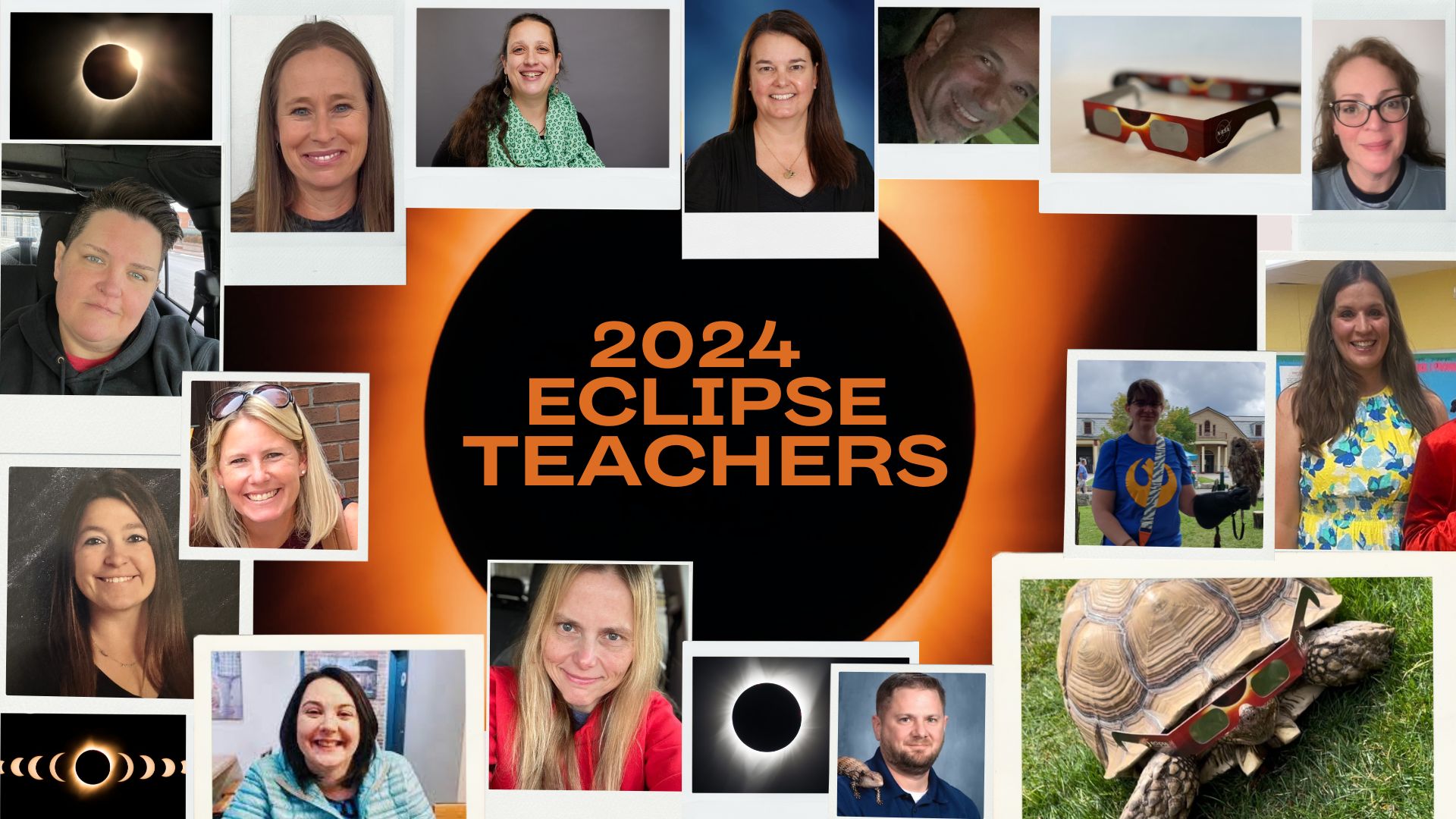3 min read
Arizona State University's (ASU) Center for Education Through Exploration, in collaboration with Eclipse Soundscapes, a NASA Citizen Science initiative based at Advanced Research in Inclusion & STEAM Accessibility (ARISA) Lab, came together to empower a cohort of enthusiastic science educators in marginalized communities ahead of the April 8th, 2024 eclipse. "Our goal (in this partnership) is to offer high-quality content to underserved communities," said Ariel Anbar, Principal Investigator of the NASA Science Action program's Infiniscope team, led by ASU.
This partnership extended support to 19 educators from states within the eclipse's path, spanning from Arkansas to New York. The educators were granted stipends, equipped with eclipse observation training, and furnished with solar-viewing glasses for their students.
Leading up to the eclipse, students in selected schools immersed themselves in three digital explorations crafted by the Infiniscope team. These engaging modules, dubbed "Kingdom in Peril," leverage NASA's Eyes on the Solar System, blending videos and interactive activities to foster knowledge construction about eclipses. The series is offered in both English and Spanish, with a focus on grades 5–8.
Furthermore, students were prepared for eclipse day by the Eclipse Soundscapes project to broaden their scientific observations beyond mere sight. Educators shared the Eclipse Soundscapes lessons on utilizing all senses for comprehensive observation. Come eclipse day, each student received NASA-provided solar viewers to safely witness the event, supplemented by recording observations through all their senses, not just sight. These data were then shared with NASA as part of their volunteer science data collection efforts. MaryKay Severino, the Eclipse Soundscapes Education Director notes that, “Integrating informal participatory science … opportunities, like the Eclipse Soundscapes project, into formal education provides students with opportunities to implement what they've learned in the classroom in a real-world, hands-on setting and contribute to real NASA science in the process."
Tonia Kirby, science teacher at the RISE Academy in Rantoul, Illinois, said, “As a brand new alternative middle school, we are focusing on giving our students real-world experiences. This is a great opportunity for our kids to see science in real time and be a part of it. I am very excited to take all of our students outside on Monday and observe the world around us.” And eight grade science teacher, Alison Zemba, at Pittsburgh Classical Academy, expressed excitement for the opportunity afforded to her students through the ASU-NASA partnership: “I have been implementing Infiniscope’s Kingdom of Peril lessons, and my students have been loving it. " She added, "They have had 'aha' moments and have been able to incorporate technology into learning about the Sun/Earth/Moon system.”
The Infiniscope and the Eclipse Soundscapes projects are supported by NASA under cooperative agreement award numbers NNX16AD79A and 80NSSC21M0008, respectively, and are part of NASA’s Science Activation Portfolio. Learn more about how Science Activation connects NASA science experts, real content, and experiences with community leaders to do science in ways that activate minds and promote deeper understanding of our world and beyond: https://science.nasa.gov/learners




